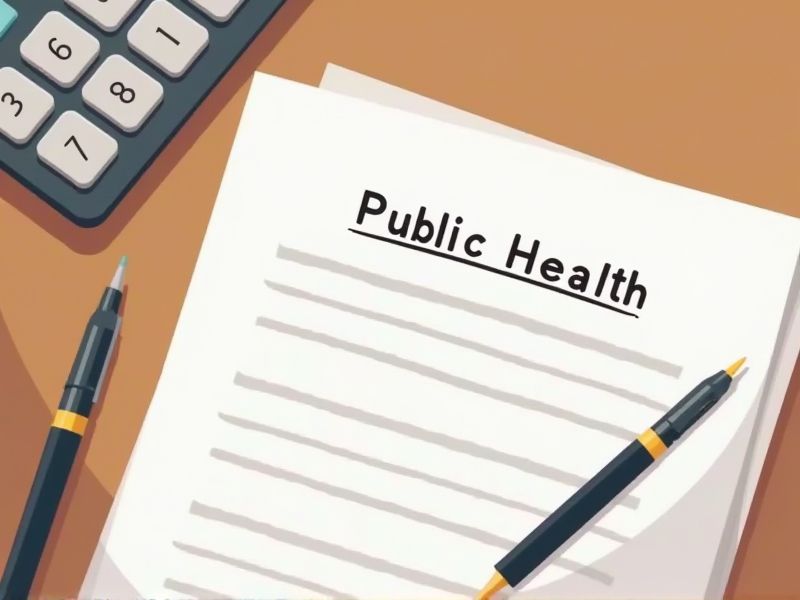
Public Health Administrators play a crucial role in managing health policies and programs, ensuring effective service delivery. Possessing specific certifications equips them with specialized knowledge and the ability to address diverse public health challenges. These credentials validate their expertise and dedication to upholding health standards and regulations. Essential certifications are instrumental for any aspiring Public Health Administrator.
Certified in Public Health (CPH)
The Certified in Public Health (CPH) credential ensures that a Public Health Administrator has a comprehensive understanding of critical public health concepts and practices, enhancing their capacity to lead effectively. Having the CPH certification can increase job competitiveness by validating expertise and commitment in the public health field. The certification helps create standardized qualifications, promoting consistent public health interventions and improving community health outcomes. Evolving public health challenges demand knowledgeable leaders, and CPH certification provides ongoing education, keeping administrators informed about current trends and developments.
Certified Health Education Specialist (CHES)
A Certified Health Education Specialist (CHES) is needed for a Public Health Administrator because they ensure that health education programs are evidence-based and effective. Their expertise in designing and evaluating educational initiatives leads to improved community health outcomes. Having a CHES credential demonstrates a commitment to professional standards and ongoing education, enhancing trust and credibility. CHES professionals bring specialized skills that optimize resource allocation, which is crucial for impactful public health administration.
Certification in Infection Control (CIC)
Certification in Infection Control (CIC) equips public health administrators with critical knowledge to effectively manage and prevent the spread of infections. This certification enhances competency in handling public health crises, reducing the risk of widespread outbreaks. CIC credentials build trust among stakeholders and the public, ensuring compliance with health regulations and standards. By having certified administrators, healthcare facilities can achieve improved patient outcomes and safety, directly impacting community health.
Public Health Emergency Preparedness (PHEP)
Public Health Emergency Preparedness equips Public Health Administrators with the tools to effectively manage and mitigate the impacts of health crises. Effective preparedness plans reduce the response time and improve the coordination between agencies during emergencies. Without robust PHEP plans, communities face increased vulnerability to disease outbreaks and natural disasters. Investment in PHEP strengthens the overall resilience of the public health infrastructure, ensuring continuity of essential services during crises.
Certified Healthcare Quality Professional (CPHQ)
Public Health Administrators benefit from the CPHQ certification because it ensures they are versed in quality management principles, which enhances the overall efficiency of healthcare programs. With the CPHQ credential, administrators are equipped to implement evidence-based practices that directly improve patient safety and care outcomes. The certification's focus on data-driven decision-making enables administrators to effectively assess and optimize public health initiatives. Holding a CPHQ signifies a commitment to continuous improvement and aligns public health strategies with the highest standards of healthcare quality.
Lean Six Sigma Green Belt for Healthcare
Public Health Administrators often encounter complex processes that can lead to inefficiencies; Lean Six Sigma Green Belt provides them with methodologies to identify and eliminate waste, improving service delivery. Healthcare environments demand quality management to ensure patient safety and satisfaction, and this certification equips administrators with skills to implement effective quality control measures. Strains on public health systems necessitate resource optimization, a core focus of Lean Six Sigma, to enhance productivity. Data-driven decision-making, integral in public health, is strengthened through the analytical tools and techniques taught in the Green Belt program, resulting in improved operational outcomes.
Certified Public Manager (CPM)
The CPM designation equips public health administrators with essential leadership and management skills, enhancing their ability to effectively handle complex health systems. By providing in-depth training in policy development, the CPM supports administrators in creating impactful public health initiatives. The credential fosters efficient resource management, ensuring that public health services are both cost-effective and sustainable. Enhanced problem-solving abilities through the CPM program result in administrators who can adeptly respond to public health challenges and crises.
Project Management Professional (PMP)
Project Management Professional (PMP) certification equips public health administrators with structured methodologies to manage complex health projects effectively. Due to the rising intricacies in health programs, PMP-certified professionals demonstrate enhanced capability in risk assessment and resource allocation. Public health initiatives often involve coordination across various stakeholders, and PMP ensures administrators possess the skills for seamless collaboration. PMP certification is recognized globally, which boosts credibility and opens doors to international opportunities in public health management.
Certified Professional in Patient Safety (CPPS)
The Certified Professional in Patient Safety (CPPS) credential equips public health administrators with comprehensive knowledge and skills to enhance patient safety efforts. This certification demonstrates a commitment to improving healthcare quality, crucial for effectively managing public health challenges. Holding a CPPS credential provides credibility, enabling administrators to lead safety initiatives that reduce medical errors and improve outcomes. CPPS-certified administrators can foster a culture of safety within healthcare organizations, fostering trust among patients and stakeholders.
Certified Professional in Healthcare Risk Management (CPHRM)
The CPHRM certification equips public health administrators with expertise in managing potential risks, thereby enhancing patient safety and care quality. Accredited professionals can effectively identify and mitigate health-related financial and operational risks, leading to more stable healthcare environments. This certification enhances a professional's credibility and demonstrates a commitment to ongoing education, fostering trust among colleagues and stakeholders. With a growing focus on risk management in healthcare, the CPHRM designation positions administrators to address complex regulatory and compliance challenges effectively.
Summary
By obtaining certifications, you can enhance your credibility and expertise as a Public Health Administrator. This recognition can lead to increased trust from stakeholders and colleagues, fostering stronger professional relationships. Certified administrators often experience improved career advancement opportunities and potentially higher salary prospects. With enhanced skills and knowledge, you can implement more effective public health strategies and programs.
